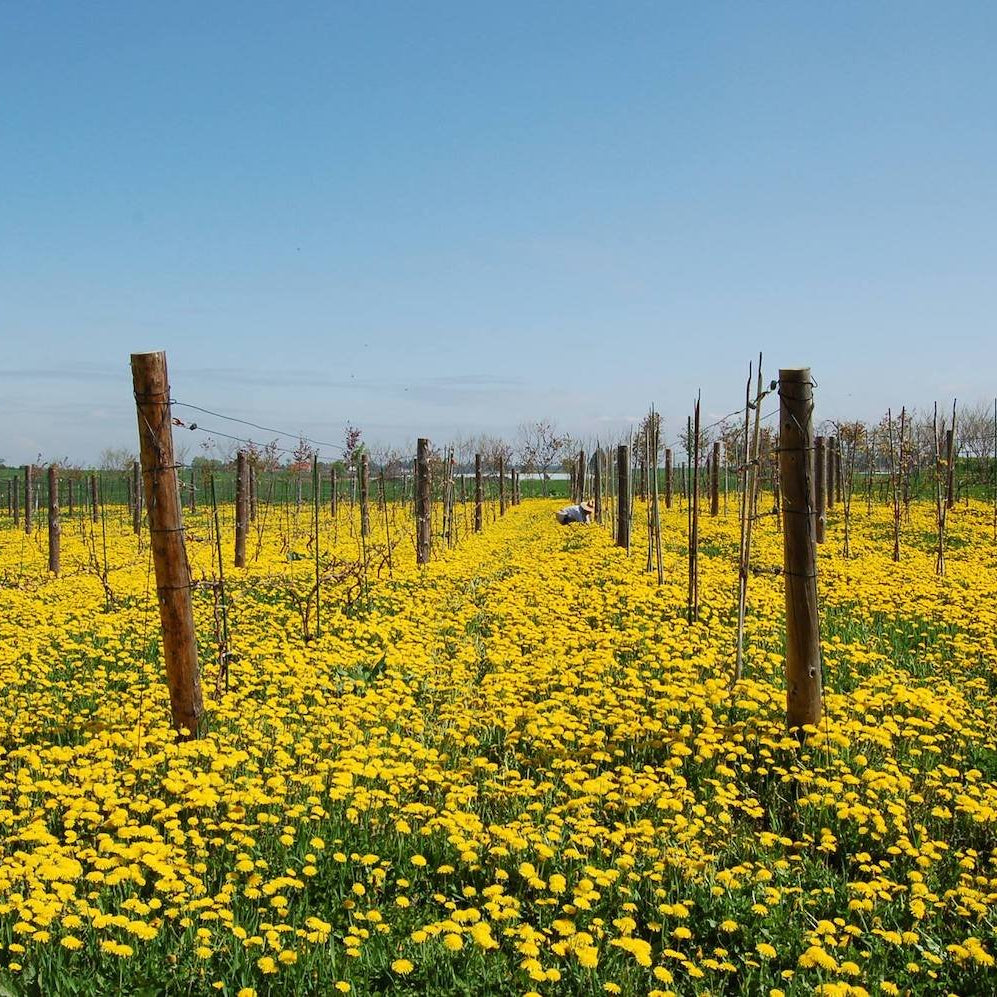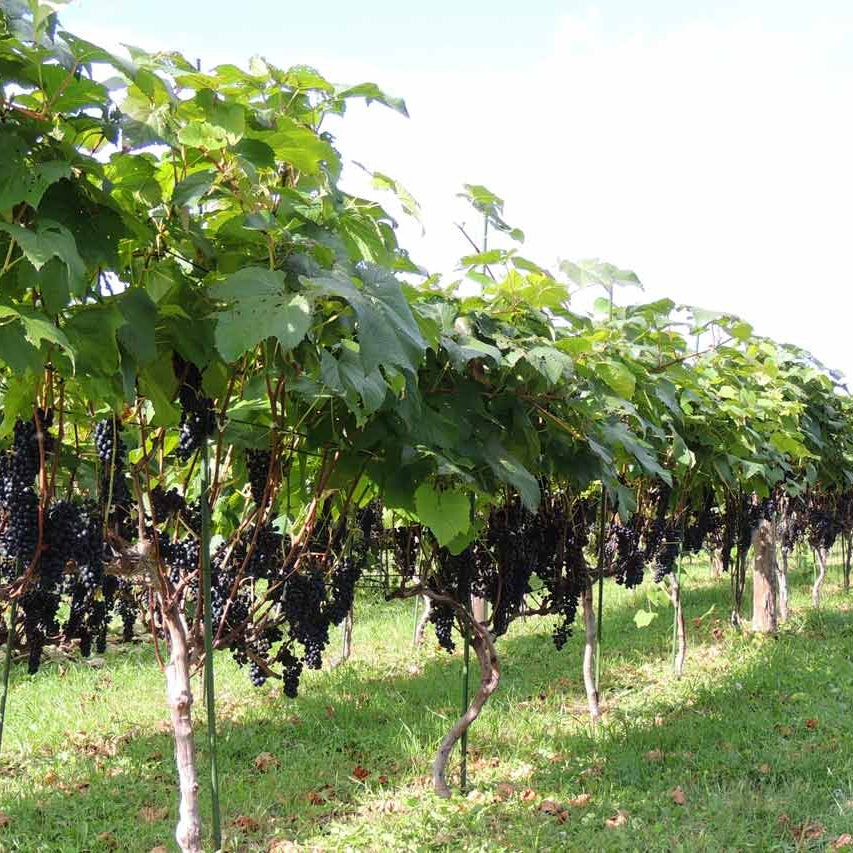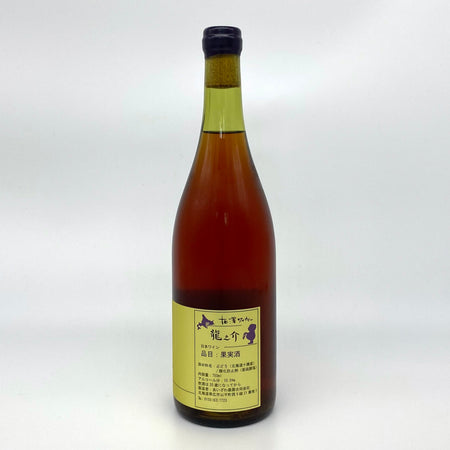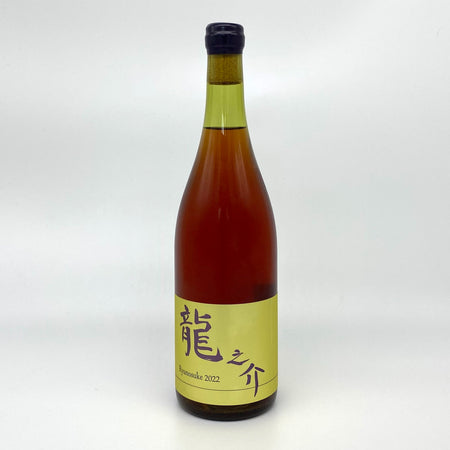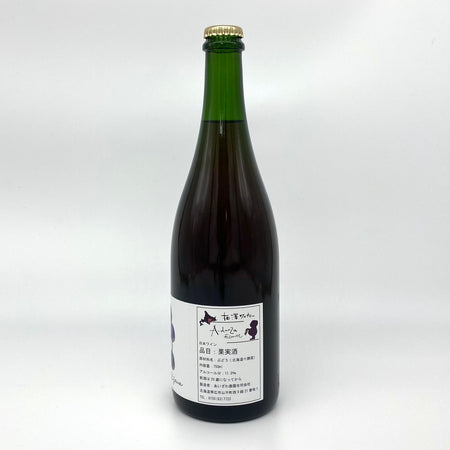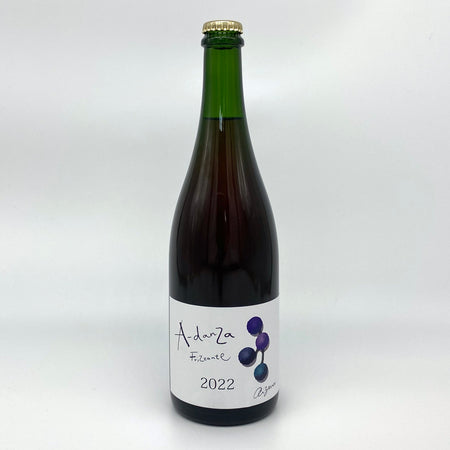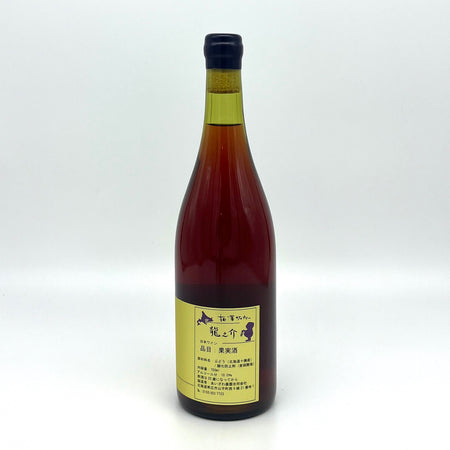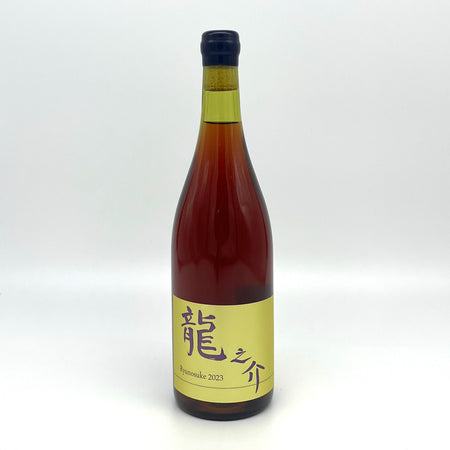Aizawa Nouen
Obihiro, Hokkaido
A Family Story Woven Through Winemaking
Aizawa Nouen is a family-run winery led by Ichiro Aizawa and his wife, Rina. Its story begins in 1998, when Ichiro’s father, Tatsuya Aizawa—now the farm manager—purchased land in Memuro, Kawanishi District in Hokkaido and began cultivating grapes.
By 2004, the original vineyard had become too small, prompting the family to relocate to their current site in Tokachi, Obihiro. The land was nothing more than forest and wilderness, but they cleared it by hand and transformed it into a vineyard from the ground up.
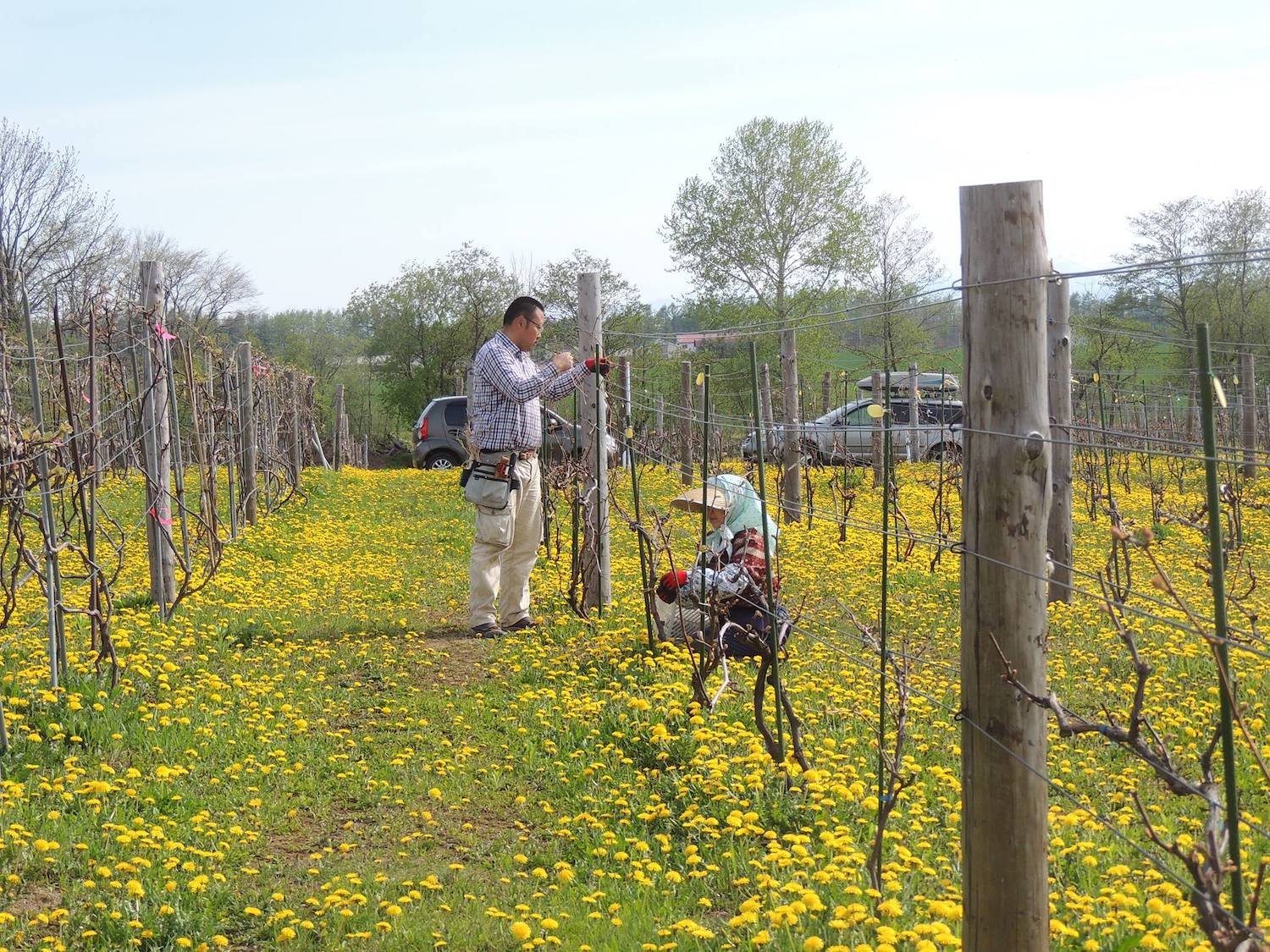
A turning point came in 2015, when Ichiro left his career at a city gas company to join the family farm. Just prior to this at the age of 33, he had studied viticulture and winemaking at 10R Winery in Iwamizawa, the Hokkaido Wine Academy, and at Japan’s National Research Institute of Brewing—experiences that deepened his passion for wine.
After Ichiro joined, the farm began producing grape juice and jam in addition to commissioning wines for custom crush. Then in 2019, fulfilling a long-held family dream, the Aizawas completed their own winery and began producing wine in-house.
Grapes Brought to Life by the Extremes of Tokachi
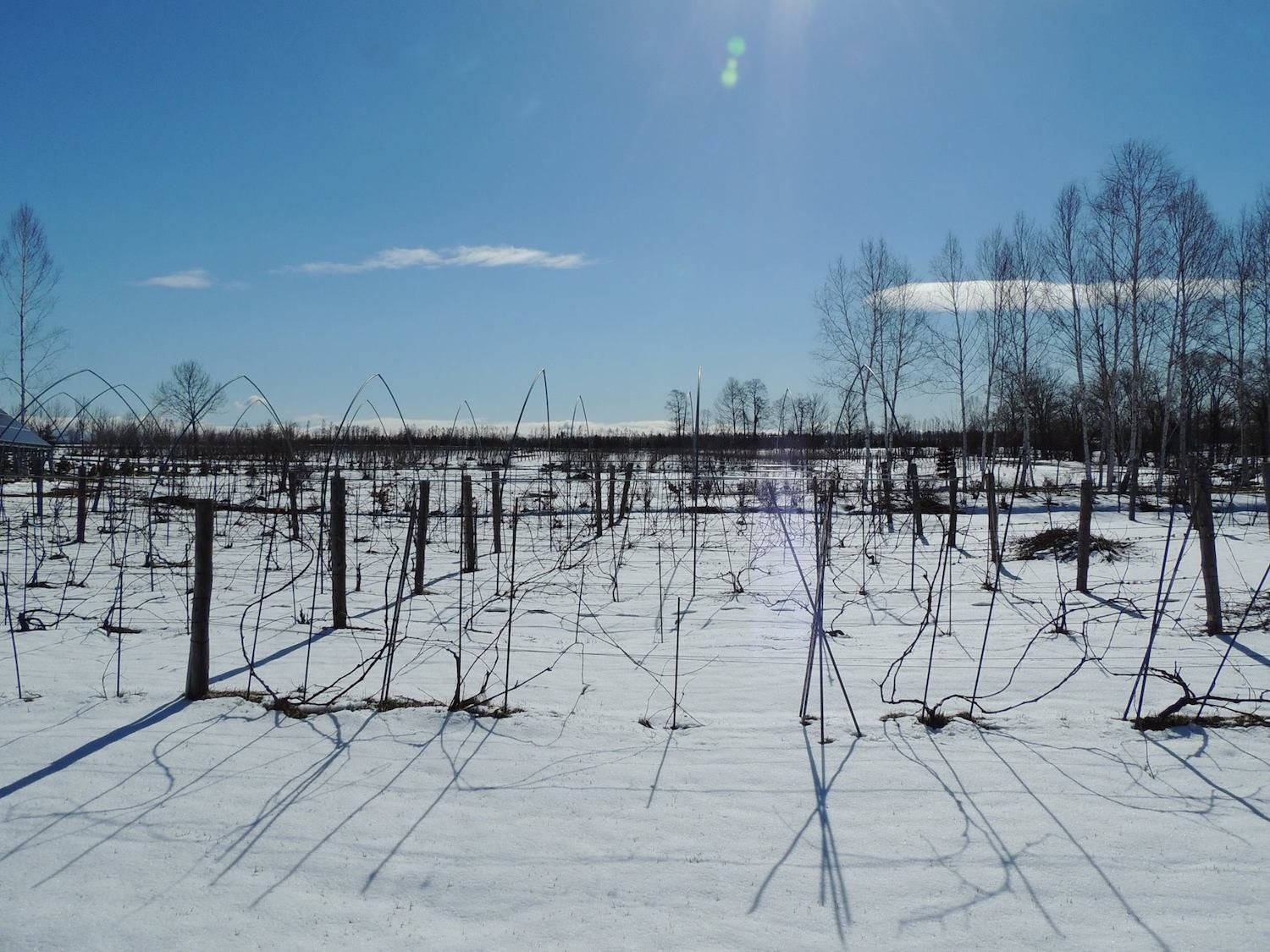
Tokachi–Obihiro, where Aizawa Nouen is located, is known for some of the harshest winters in Hokkaido, with temperatures dropping as low as –30°C. In contrast, summer temperatures can exceed 35°C, and such extreme fluctuations have often led people to believe that grape cultivation is unsuitable here.
But Ichiro and his family saw opportunity where others saw difficulty. The intense cold keeps pests at bay, allowing them to grow grapes entirely without pesticides—one of the defining characteristics of Aizawa Nouen.
From the beginning, their philosophy has been to preserve and restore the natural environment wherever possible. Existing trees were left standing, and where there were few, they planted around 2,000 trees of various species. They also apply compost produced locally in Tokachi, working to recreate an ecosystem that mirrors the region’s native landscape.
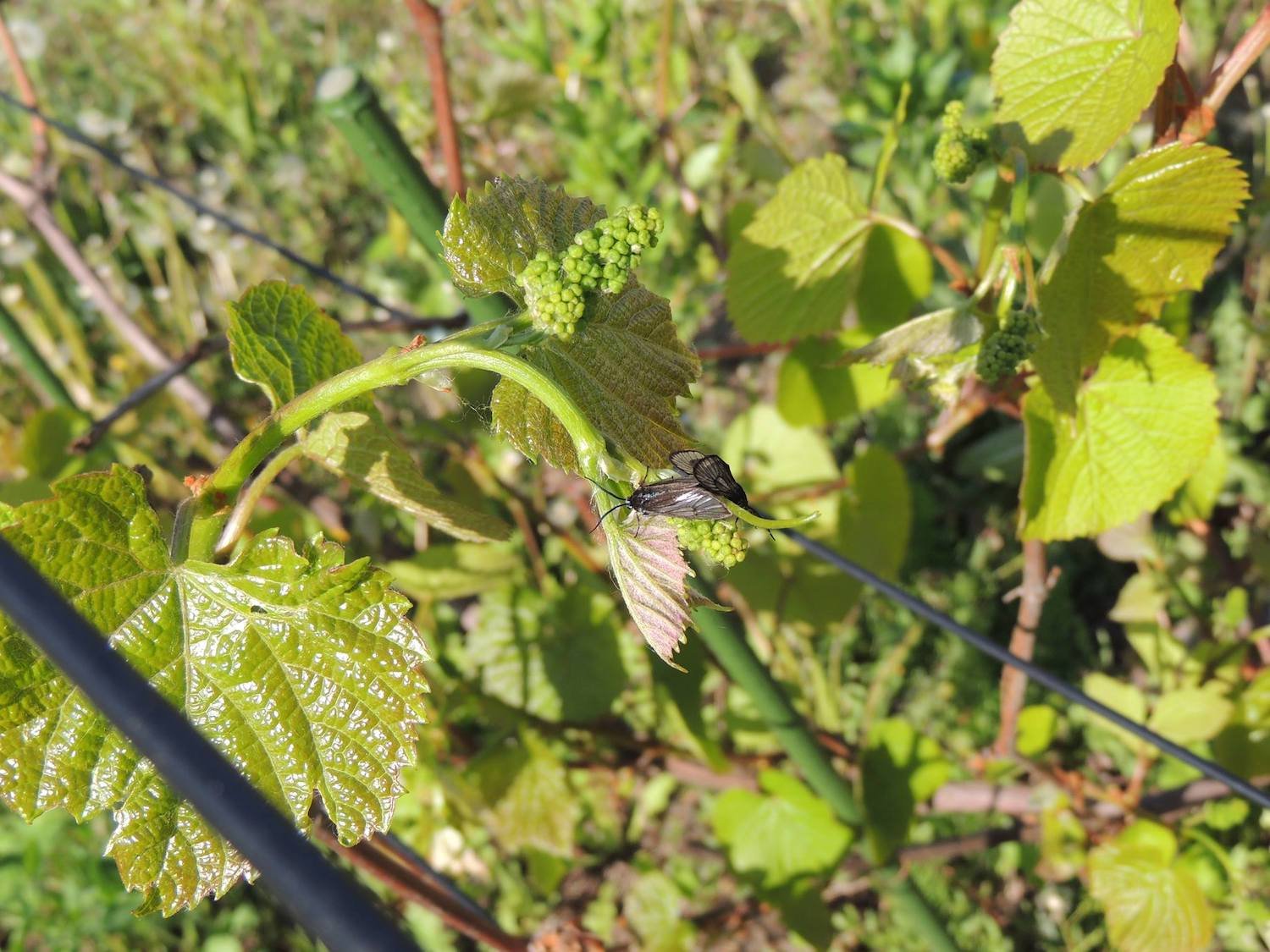
As the number of trees grew, the vineyard began to develop a rich biodiversity. More bird species appeared each year. Birds of prey began catching mice that gnawed at the trees, and unknown small birds were found skewering beetles on the branches. In autumn, flocks of birds arrive to feast on the grapes. Pest control is done entirely by hand, but nature often assists—when grape moths appear, green shield bugs soon follow; when aphids appear, ladybirds arrive.
In the severe climate of Tokachi, only cold-hardy Yamabudou-type varieties can thrive. Yet this also means the grapes develop thick skins and robust flavours, yielding wines of power and depth that are unique to this region.
Grape Varieties
Yamasachi
A Japanese hybrid created from Kiyomi (mother) and Yamabudou (father), and the first Japanese grape variety to be officially registered by the OIV. Ichiro encountered Yamasachi while training at 10R Winery and was captivated by its distinctiveness, prompting him to purchase vines from Tokachi Wine for cultivation. It is known for its wild, Yamabudou-derived aromatics and vibrant acidity, producing expressive red and rosé wines.
Yamabudou
A wild grape native to the forests of Hokkaido and Honshu. Exceptionally cold-hardy, with very thick skins and a high seed ratio, it offers powerful acidity, deep wild character, and a rich wine-red colour. While approachable when young, it is one of Japan’s rare varieties capable of 10–15 years of ageing, developing notes of spice, herbs, and dark fruits.
Kiyomi
A selection from the cold-resistant Seibel 13053, chosen for its exceptional winter hardiness. Despite surviving extreme Tokachi winters, it yields pale-coloured wines with gentle fruit and refreshing acidity. Its light-bodied elegance is often compared to Pinot Noir, making it suitable for reds, rosés, and sparkling wines.
Kiyomai
A Japanese hybrid created from Kiyomi (mother) and Yamabudou (father), cultivated from vines sourced from Tokachi Wine. It shares a lineage with Yamasachi but expresses a lighter, fresher acidity.Its wines are charming and fruit-forward, with herbal and red-fruit nuances, offering excellent balance as versatile food wines that reflect Tokachi’s cool-climate precision.
Wines Born from Untouched Soil and Natural Fermentation
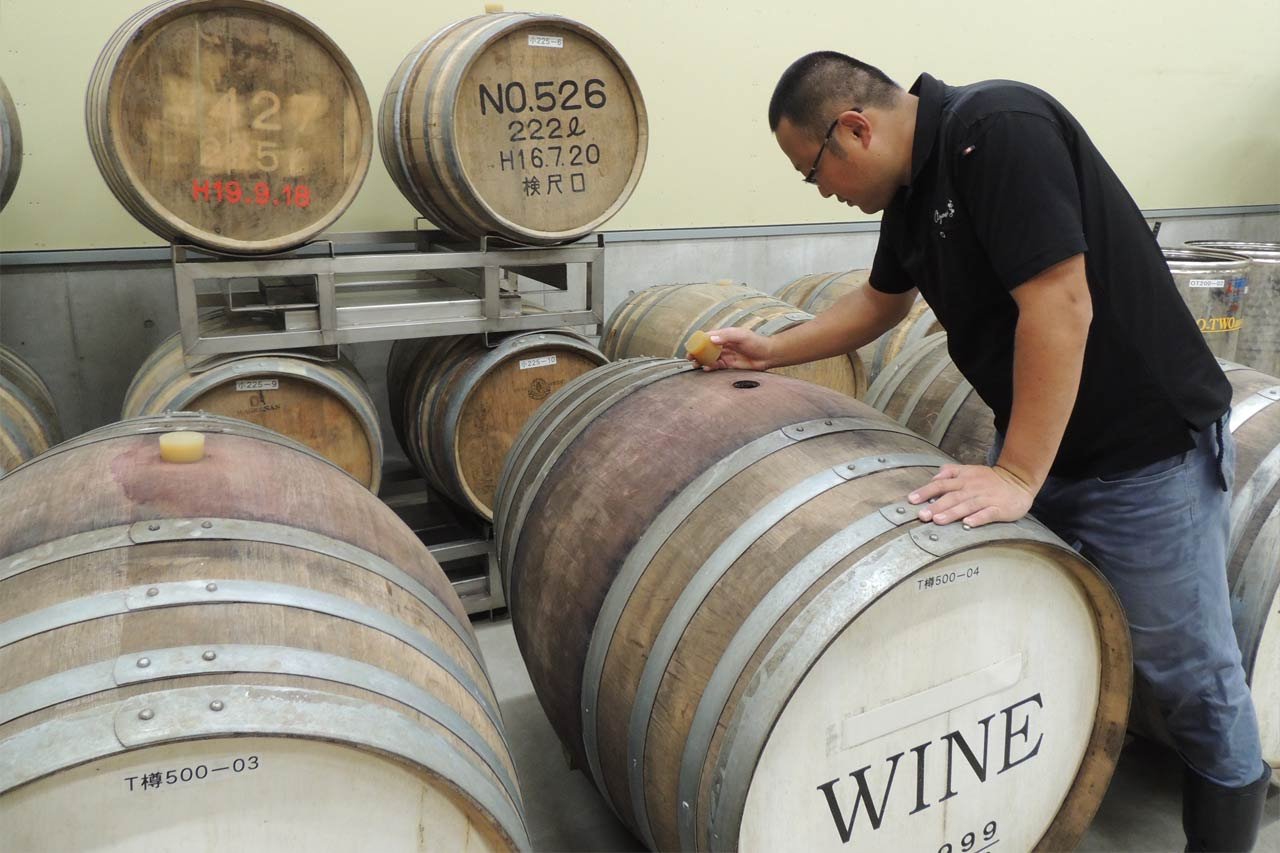
At Aizawa Nouen, winemaking centres on natural fermentation driven by the wild yeasts that thrive on grapes grown completely without pesticides. The vineyards—cleared from untouched forest—harbour healthy, diverse yeast populations on the grape skins, allowing fermentation to begin naturally.
Because wild yeast ferments at different speeds in each tank, Ichiro and his team closely observe the fermenting must each day, practising a low-intervention approach to winemaking that encourages the grapes to express their true character.
Yamabudou-type varieties have thick skins and high acidity, enabling slow extraction of flavour during fermentation and resulting in wines that balance strength with clarity. Some wines are aged quietly in old barrels, where the restrained influence of wood lends roundness and depth without overpowering the fruit.
Their wines are bottled unfiltered and unfined, capturing the full vitality and raw expression of the grapes. Only minimal sulphur dioxide (SO₂) is used, preserving natural flavour while maintaining stability.
Tokachi’s severe winters, short summers, and demanding harvest season create a challenging environment, yet Ichiro and his family approach their work with the motto: “Enjoy what you do.”
With genuine curiosity, they began exporting their wines to Europe—wondering how wines made from Tokachi-grown Yamabudou would be received in the so-called “home” of wine.
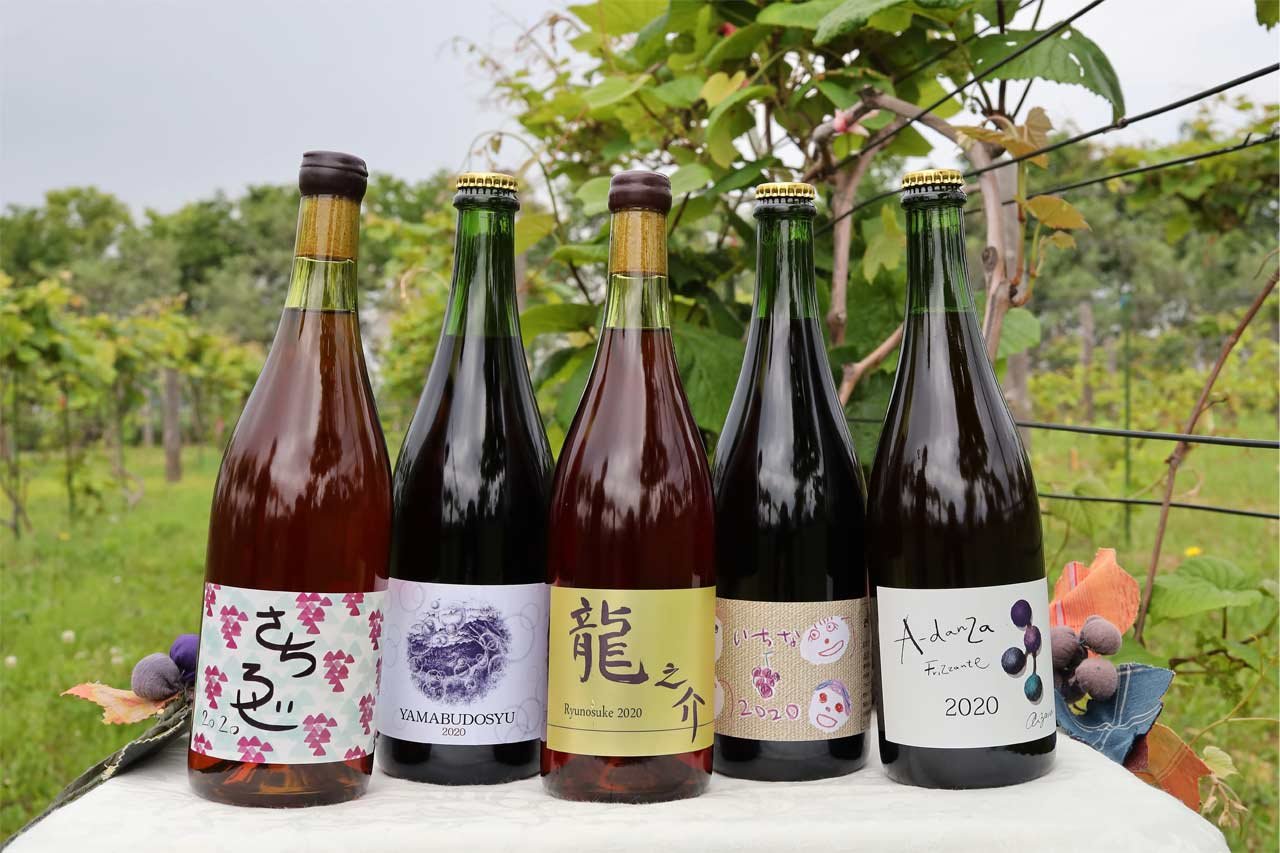
Aizawa Nouen is committed not only to making delicious, natural wines but also to fostering a new generation of wineries in Tokachi. More wineries would attract wine lovers from around the world, helping revitalise the region.
For the Aizawa family, winemaking—and their step into the international stage—is a way to build connections between people through the humble yet powerful Yamabudou.

